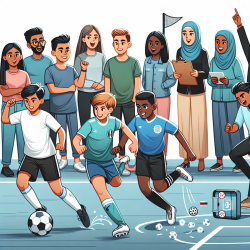As speech-language pathologists (SLPs), our primary goal is to provide the best possible care for our pediatric clients. To achieve this, it is essential to understand the perspectives of the families we serve. A recent study titled What do parents of children with dysphagia think about their MDT? A qualitative study offers valuable insights that can help us improve our practice.
Key Findings from the Study
The study involved interviews with 14 families caring for children with dysphagia. The parents shared their experiences and identified several facilitators and barriers to effective collaboration with their child's multidisciplinary team (MDT). Here are the key findings:
- Desire for Involvement: Parents universally expressed a desire to be actively involved in their child's care. They valued their role as experts on their child's needs and wanted to be recognized as key members of the MDT.
- Accessing Services: Parents reported issues related to accessing services, including time constraints, staffing shortages, and lack of flexibility in service delivery. These barriers often led to dissatisfaction and negative impacts on the child's well-being.
- Professional Knowledge and Skillset: Parents valued healthcare professionals who demonstrated strong communication skills, empathy, and a willingness to listen. They also emphasized the importance of professionals working together cohesively to provide holistic care.
Strategies for Improvement
Based on the study's findings, here are some strategies that SLPs and other professionals can implement to enhance collaboration with families:
- Enhance Communication: Actively seek parents' input and involve them in decision-making processes. Ensure that communication is clear, jargon-free, and consistent across all members of the MDT.
- Increase Flexibility: Offer flexible service delivery options, such as home visits or teletherapy, to accommodate families' schedules and reduce barriers to accessing care.
- Promote Professional Development: Encourage continuous learning and skill development among MDT members to ensure they are equipped with the latest knowledge and techniques in dysphagia management.
Encouraging Further Research
While this study provides valuable insights, it also highlights the need for further research. Future studies could explore the experiences of socially isolated families or those with different demographic backgrounds to gain a more comprehensive understanding of the challenges they face.
By incorporating these strategies and continuing to build on existing research, we can improve our practice and create better outcomes for children with dysphagia and their families.
To read the original research paper, please follow this link: What do parents of children with dysphagia think about their MDT? A qualitative study.










